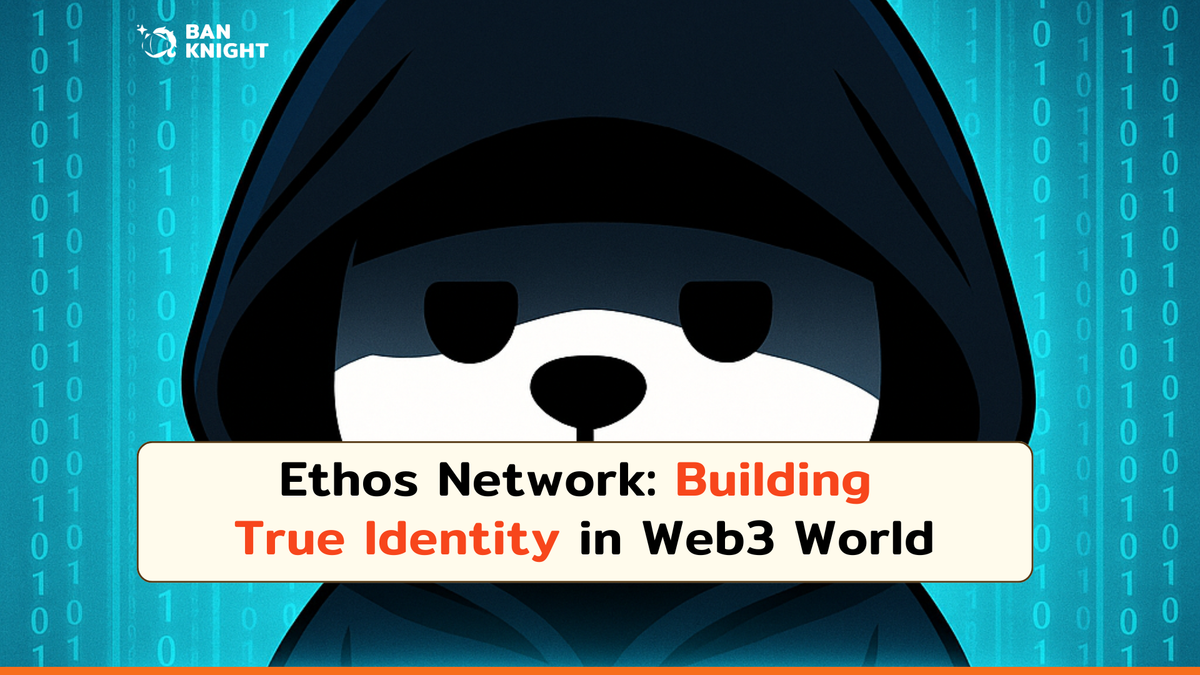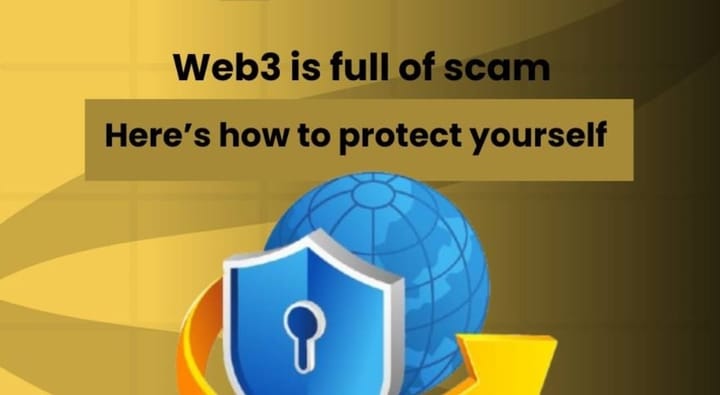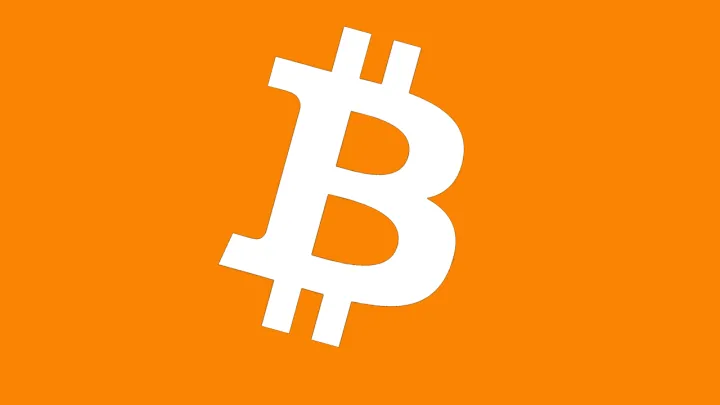Ethos Network: Building True Identity in Web3
Ethos Network: Building True Identity in Web3

In the era of Web3, characterized by decentralization and pseudonymity, individuals can endlessly create new accounts or digital wallets without anyone truly knowing "who is who." This creates opportunities for fraud, Sybil attacks (creating numerous fake accounts to manipulate the system), and makes building trust between people incredibly challenging. While Web2 offers social media profiles and e-commerce platforms that establish credibility scores, the crypto world still lacks transparent and verifiable mechanisms to indicate who is a good contributor and who should be approached with caution.
This is the mission of Ethos Network: to solve this problem by creating a "Reputation Layer" for the Web3 world. Its goal is to build on-chain credibility profiles that cannot be forged or deleted, helping the crypto community identify reputable participants, foster trust, and drive the sustainable growth of the ecosystem.
🧠 What is Ethos Network?
Ethos Network is a project committed to becoming the fundamental "Reputation Layer" for Web3. It's a system that will enable individuals in the crypto world to build and accumulate "reputation" or "credibility scores" on the blockchain. This data will be permanently recorded, verifiable, and immutable, unlike centralized reputation systems in Web2 where data is controlled by a single company.
Why is "Reputation" Crucial in the Crypto World?
Trust is the bedrock of every society and transaction. In the crypto world, the importance of "reputation" is even more amplified because:
- Pseudonymity: People can continuously create new digital wallets, and no one truly knows who is behind that wallet, making it difficult to assess trustworthiness.
- Lack of History: We need to know who has "contributed" or has a "good track record" in the crypto community – who are the builders, and who are the scammers?
- Attack Prevention: The absence of a reputation mechanism makes Sybil attacks easy, such as creating numerous fake accounts to claim Airdrops or manipulate DAO votes.
Ethos steps in to fill this gap, ensuring that Web3 is not just a space for technology, but a space where people can build relationships and collaborate based on genuine trust.
The Core Structure of Ethos Network: How is Trust Built?
Ethos Network is intelligently designed, integrating social and economic mechanisms with blockchain technology:
- Invitation System – Filtering Good Actors from the Start
- Sybil Attack Prevention: Ethos uses an invitation system to prevent the creation of numerous fake accounts. All new users must receive an invitation from an existing member.
- Shared Responsibility: Once a new user joins, the system links the credibility scores between the inviter and the invited for 90 days. If the invited user behaves well, the inviter gains 20% of the invited's increased credibility score. Conversely, if the invited user acts inappropriately, the inviter loses 20% of their score. This incentivizes inviters to be "responsible" for those they bring into the network.
- On-chain Credibility Score – An Immutable History Ethos generates credibility scores from various activities occurring on the blockchain, making it transparent and verifiable:
- Review: Users can give positive, neutral, or negative ratings to others. Reviews from users with higher credibility scores carry more weight, indicating that the opinions of experienced participants are valued.
- Vouching: Users can "Stake ETH" (lock up ETH as collateral) to vouch for the credibility of others. This staking is more than just a like; it demonstrates tangible confidence, which impacts the vouched user's score.
- Slashing: If a user discovers inappropriate behavior, they can propose to reduce the offender's credibility score. This requires staking ETH to show the seriousness of the accusation. If the accusation is found to be false, the accuser may lose their staked ETH.
- Economic Skin-in-the-Game – Tangible Accountability The Ethos system closely ties credibility to economic incentives. Users who vouch for others by staking ETH will be economically affected if the vouched individual misbehaves. This creates a strong incentive for users to "vet" and only vouch for genuinely trustworthy individuals, rather than making baseless endorsements.
Use Cases and Benefits of Ethos Network
Ethos Network is not merely a concept; it's a powerful tool with immense benefits for the Web3 ecosystem:
- Creating Comprehensive Credibility Profiles: Users can build a cohesive Digital Identity by aggregate data from both on-chain (blockchain activity) and off-chain (external information) sources, such as linking Twitter accounts, ENS (Ethereum Name Service), GitHub, and Ethereum addresses, to establish a unified and credible identity in the Web3 world.
- Utilizing Credibility Scores in the Web3 Ecosystem: The generated credibility scores can be applied in various contexts:
- DAOs (Decentralized Autonomous Organizations): Used to determine voting rights or participation in special activities, enabling DAOs to filter for high-quality, constructive members.
- DeFi (Decentralized Finance): Used as collateral for reputation-backed lending or participation in various protocols, potentially reducing the need for substantial financial collateral.
- Marketplace: Used to assess the trustworthiness of buyers or sellers, fostering greater confidence in transactions between parties.
- Web3 Recruiter: Used to select candidates or contributors for various projects based on their on-chain participation history and reputation.
- Fraud and Sybil Attack Prevention: With a credibility scoring system tied to economic incentives, Ethos significantly mitigates the risk of fraud and Sybil attacks. Those attempting to commit fraud would incur financial losses (staked ETH), creating a strong deterrent and incentivizing users to behave appropriately and be accountable for their actions.
Vision and Future of Ethos Network
Ethos aims to become the "foundational credibility layer" for the Web3 world by building a transparent, fair, and decentralized system that can be widely applied in various contexts, such as:
- Employment: Selecting employees or collaborators based on verifiable credibility.
- Lending: Lending systems that assess based on reputation, not just collateral.
- Community Building: Fostering strong and trustworthy communities.
- Accurate Airdrops: Projects can distribute Airdrops to genuine, quality users and contributors, rather than bots or fake accounts.
- Collaboration: Helping new projects find reliable partners, KOLs (Key Opinion Leaders), or contributors more easily.
By combining blockchain technology, economic incentives, and social mechanisms, Ethos offers a new approach to building trust in the digital world without relying on central organizations. It not only solves persistent problems in the crypto world but also lays a crucial foundation for a safer and more trustworthy future of Web3.
Conclusion
Ethos Network is pioneering a new way to build trust in the decentralized Web3 world. Unlike Web2's real-world identity links, Ethos creates verifiable, on-chain credibility profiles that are pseudonymous yet genuinely trustworthy. This solves a major challenge in crypto, unleashing blockchain's full potential for more confident collaboration, innovation, and transactions, ushering in a new era of Web3 filled with opportunity and genuine confidence.



Comments ()